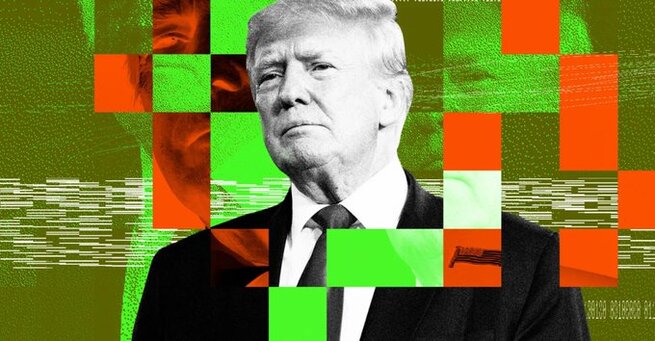
Is Apple really moving iPhone production to India? Will Apple stop manufacturing in India because of Donald Trump? These are questions dominating search trends after former President Donald Trump publicly criticized Apple for expanding its manufacturing operations in India. During a high-profile visit to Qatar, Trump expressed strong disapproval of Apple’s overseas production strategy, urging CEO Tim Cook to prioritize U.S.-based manufacturing instead. The comments come as Apple continues to diversify its supply chain away from China, making India a key player in its global production ecosystem.
Apple has been gradually increasing iPhone assembly in India to mitigate supply chain risks and reduce reliance on China. The company’s decision aligns with broader global tech trends, especially as U.S.–China relations remain tense and labor costs in China rise. However, Trump’s recent statement—“We’re not interested in you building in India”—signals potential political resistance to Apple's international expansion, particularly if he returns to the presidency. His remarks also highlight ongoing challenges in balancing globalization with domestic job creation and economic nationalism.
Despite Trump’s criticisms, Apple has committed a staggering $500 billion investment in the U.S. over the next four years. The promise includes infrastructure upgrades, tech innovation hubs, and jobs across multiple states. Still, bringing large-scale iPhone production back to the U.S. remains unlikely. Industry experts cite critical barriers such as labor shortages, lack of component suppliers, and absence of high-volume manufacturing facilities. These constraints mean that even with massive investments, producing iPhones entirely in America is not currently viable.
From an economic perspective, high CPC keywords like “Apple manufacturing costs,” “offshore production impact,” and “U.S. tech policy” underscore the financial and geopolitical stakes at play. Apple’s shift to India isn’t just a business decision—it’s a strategic maneuver influenced by international trade tensions, supply chain optimization, and evolving regulatory landscapes. India, with its growing skilled workforce and government incentives, presents a cost-effective alternative that supports Apple’s long-term growth and profitability.
According to recent reports from The Financial Times, Apple aims to produce all iPhones sold in the U.S. from Indian factories by the end of 2026. This aggressive timeline indicates Apple’s commitment to Indian manufacturing, despite political pushback. The expansion also benefits India’s economy by boosting job creation, enhancing tech infrastructure, and attracting more foreign direct investment (FDI). Indian Prime Minister Narendra Modi has welcomed Apple’s presence, viewing it as a validation of India’s role as a global manufacturing hub.
Still, Trump's position taps into a populist narrative—one where American companies should invest at home rather than abroad. This rhetoric could influence future tech policies, tariffs, and trade deals, especially if he secures another term in office. His administration previously imposed tariffs on Chinese imports, prompting companies like Apple to look for alternatives like Vietnam and India. Should similar trade restrictions return, Apple may find its overseas strategy under even more pressure.
From a policy and business standpoint, this tension raises questions about corporate responsibility, national interests, and globalization. Should tech giants like Apple be held accountable for where they build their products? Can the U.S. realistically compete with low-cost manufacturing powerhouses without compromising on product pricing or profitability? And most importantly, what role will government regulation play in shaping the future of American tech manufacturing?
As Apple navigates this complex landscape, it must strike a balance between maintaining profitability, securing its supply chain, and meeting political expectations. For investors, analysts, and everyday consumers, the outcome of this debate could influence everything from iPhone pricing and product availability to job markets and trade policies. With Trump back in the political spotlight, companies like Apple will likely face renewed scrutiny over their global operations and long-term commitments to American industry.
𝗦𝗲𝗺𝗮𝘀𝗼𝗰𝗶𝗮𝗹 𝗶𝘀 𝘄𝗵𝗲𝗿𝗲 𝗿𝗲𝗮𝗹 𝗽𝗲𝗼𝗽𝗹𝗲 𝗰𝗼𝗻𝗻𝗲𝗰𝘁, 𝗴𝗿𝗼𝘄, 𝗮𝗻𝗱 𝗯𝗲𝗹𝗼𝗻𝗴. We’re more than just a social platform — from jobs and blogs to events and daily chats, we bring people and ideas together in one simple, meaningful space.